Seoul’s Lab Tests Not Linked to Nukes: IAEA
Staff Reporter
Laboratory experiments in South Korea in the past that produced tiny amounts of nuclear material were not linked to any secret weapons development program, the U.N. atomic agency said in its report Friday.
A report drawn up by the International Atomic Energy Agency (IAEA) on the nation’s recently revealed nuclear activities has been circulated to the 35 member states on its board of governors, according to sources.
As the IAEA has completed its report, attentions are now being drawn to whether the controversial case will be referred to the U.N. Security Council or simply be resolved at a board meeting slated for Nov. 25, to which the report will be officially presented.
A Seoul official said the IAEA report does not include any judgment concerning values but only enumerates ``objective facts’’ on the laboratory experiments that were carried out in 1982 and 2000 with plutonium and uranium, respectively.
``There is no judgment on whether South Korea failed to fulfill its duties as an IAEA member state, nor does it mention whether the nuclear materials were of weapons grade,’’ the official said on condition of anonymity. ``There is no expression like `weapons grade’ in the report.’’
According to the 8-page report, the average enrichment level of the 0.2-gram uranium produced in the 2000 experiment was 10.2 percent, but a very small amount was close to 77 percent. As far as the quality is concerned, uranium enriched to 90 percent is generally considered weapons grade.
The average enrichment level of the plutonium produced in the 1982 tests was about 98 percent, according to the report, but the tiny amount _ 0.7 gram _ was regarded as far too small to have any link to a clandestine atomic weapons program.
Though it acknowledged the experiments were ``laboratory-scale’’ and the amounts of nuclear materials involved ``relatively small,’’ the IAEA stated that it was ``a matter of serious concern’’ that the South Korean government had failed to report them properly.
The report is the culmination of three on-site surveys over the past couple of months by the Vienna-based organization’s special inspection teams. The IAEA has praised South Korea’s ``active cooperation’’ in the inspections.
Seoul hopes the cases will be brought to an early end at the Nov. 25 board meeting without being passed onto the U.N. Security Council, which might lead to punitive measures.
Lee Jong-seok, deputy head of the National Security Council and currently visiting the United States, said he had asked senior Washington officials for cooperation for the fair resolution of the issue of Seoul’s nuclear experiments.
``Our government has dealt with the issue transparently in active cooperation with the IAEA, and it is not a matter to attract suspicions,’’ Lee said, adding that U.S. officials, including Undersecretary of State John Bolton, shared the view.
However, Bolton, the chief U.S. arms control official, had expressed the view that South Korea should face U.N. scrutiny over its recently revealed nuclear experiments, according to media reports.
jinryu@koreatimes.co.kr
스마터리빙
more [ 건강]
[ 건강]이제 혈관 건강도 챙기자!
[현대해운]우리 눈에 보이지 않기 때문에 혈관 건강을 챙기는 것은 결코 쉽지 않은데요. 여러분은 혈관 건강을 유지하기 위해 어떤 노력을 하시나요?
 [ 건강]
[ 건강]내 몸이 건강해지는 과일궁합
 [ 라이프]
[ 라이프]벌레야 물럿거라! 천연 해충제 만들기
 [ 건강]
[ 건강]혈압 낮추는데 좋은 식품
[현대해운]혈관 건강은 주로 노화가 진행되면서 지켜야 할 문제라고 인식되어 왔습니다. 최근 생활 패턴과 식생활의 변화로 혈관의 노화 진행이 빨라지고
사람·사람들
more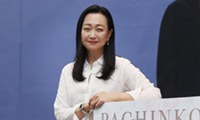
[‘파친코’ 이민진 작가,인터뷰] “이민자와 취약계층 보호해야”
재미 한인 작가 이민진(57)씨가 새해 1월1일 뉴욕시장으로 취임하는 조란 맘다니(34) 뉴욕시장 당선인에 대해 “맘다니 시장이 긍정적인 변화…
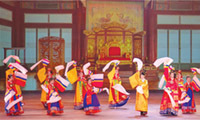
김응화무용단, LA 카운티 연말축제서 ‘화관무’
김응화무용단이 지난 24일 열린 LA 카운티 연말 문화행사 제66회‘할러데이 축제’ 무대에 초청돼 한국 전통무용 ‘화관무’를 선보였다고 밝혔다…
이민단속·산불 영향 LA카운티 인구 감소
LA 카운티 인구가 올해 상당수 감소한 것으로 나타났다. 캘리포니아 주 재무국이 최근 발표한 자료에 따르면 올해 7월1일 기준 LA카운티의 인…
한인 2세, 드라마 ‘런’ 주연 맡아
권호열 세계무술총연맹 총재의 아들 에릭 권씨가 주연하는 드라마 ‘런(RUN)’ 시사회가 지난주 버지니아 애쉬번 소재 리걸 폭스 극장에서 열렸다…
[송년 행사] 코윈 퍼시픽 LA
한민족 여성네트워크(KOWIN) 퍼시픽 LA(회장 조미순)는 23일 LA 용수산에서 2025년 송년회를 열었다. 이날 행사에는 가정폭력 피해 …
많이 본 기사
- 영주권자도 생체정보 전면 확인 1
- ICE 단속 전략 전환… ‘현장 체포’ 급증
- [새해 달라지는 교통법규] 과속·음주운전 처벌 가주서 대폭 강화
- 신년 연휴에 또 비 이번주 ‘강풍주의보’
- 이민자 트럭 운전사들 “면허박탈 위법” 소송
- 최대 신년축제 로즈퍼레이드 D-3… 꽃차 장식 한창
- 트럼프 정부, 이민 2세대까지 공격
- 건강한 노년을 위한 식사법, 무엇을 어떻게 먹어야 할까
- 재정보조의 성공은 재정보조 대상금액(FN)의 설계부터
- 연말에 일가족 5명 숨진 채 발견… 경북서 손자·조부까지 3대 ‘비극’
- 다크 초콜릿·커피 속 ‘테오브로민’… “세포 노화 늦춘다”
- ‘前 박유천 약혼녀’, ‘엄마’ 됐다더니..황하나, “400만 원 명품패딩” 뽐내며 3번째 구속길 걸었다
- 401(k) 백만장자 50만명 돌파… 시간·복리 투자 ‘결실’
- 국무부 비자·여권 정책 총괄에 ‘미용실 사장’?
- 젤렌스키, 트럼프와 ‘마러라고 담판’… 러는 무력시위
- [메건 매카들 칼럼] 역차별 당하는 젊은 백인 남성들
- LA시 아파트(1978년 이전 건설) 렌트비 연 4% 이상 못 올린다
- 5 Fwy 다중추돌 참사 1명 사망·15명 부상
- 어도어 “다니엘, 뉴진스 함께 하기 어렵다..전속계약해지 통보”
- [화제 기업] 회사 팔리자 해고 대신 ‘44만달러’ 보너스
- “ ‘X진상’ 이시영, ‘매너타임’ 아무런 소용 없었다”..캠핑장 만행 폭로 줄줄이
- 브리짓 바르도 별세 왕년의 스타, 91세로
- 캐스테익 지역서 대형 가스관 폭발 누출
- 펠로시 “중간선거서 민주당이 하원 다수당 될것”
- 사유리, 아들과 기모노 가족사진.. “아빠 없어 불쌍? 웃어넘겨”
- 미국이 K-푸드 주력시장… 중국 제치고 1위 부상
- CJ, 미국서 전통주 문화 확산 나서
- 지메일 주소변경 가능 구글, 앞부분 새 설정
- 엔비디아, 기술계약으로 규제 회피
- 2025년 미국의 경제
- 배관 시설 사용 느는 연말… 갑작스러운 고장 피하려면
- [이민법 칼럼] O-1 비자와 개인 스폰서
- 2025년의 최대 패배자(Loser of The Year 2025)는?
- 1차 조기전형 ‘합격 유예’ 받았다면… 입시 전략 재검토 기회
- 트럼프 관세… 와인 시장도 ‘휘청’
- “북한, 훔친 암호화폐 규모 최소 60억달러 달해”
- 세밑의 단상(斷想)
- [만화경] 봉황의 청와대 귀환
- 연말엔 르세라핌! K팝 그룹 유일 美 최대 규모 새해맞이 라이브 쇼 출연 ‘기대 UP’
- 가주 고속철 재정계획 ‘궤도 수정’
- 사랑하는 이를 그리며
- 겨울 모서리
- 올해 미 기업 파산 신청 증가
- A World of Voices
- 북동부 3년만에 최대 폭설 ‘항공대란’
- Rise of Amazon
- “빅테크, AI 부채 1,186억달러 장부서 제외”
- NASA 국장 “트럼프 임기내 달 착륙”
- “해외 소포 파손·폐기·배송지연 속출”
- 은값 77달러 돌파, 역대 최고치 행진
1/5지식톡

-
 미 육군 사관학교 West Poin…
0
미 육군 사관학교 West Poin…
0https://youtu.be/SxD8cEhNV6Q연락처:wpkapca@gmail.comJohn Choi: 714-716-6414West Point 합격증을 받으셨나요?미 육군사관학교 West Point 학부모 모…
-
 ☝️해외에서도 가능한 한국어 선생님…
0
☝️해외에서도 가능한 한국어 선생님…
0이 영상 하나면 충분합니다!♥️상담신청문의♥️☝️ 문의 폭주로 '선착순 상담'만 진행합니다.☎️ : 02-6213-9094✨카카오톡ID : @GOODEDU77 (@골뱅이 꼭 붙여주셔야합니다…
-
 테슬라 자동차 시트커버 장착
0
테슬라 자동차 시트커버 장착
0테슬라 시트커버, 사놓고 아직 못 씌우셨죠?장착이 생각보다 쉽지 않습니다.20년 경력 전문가에게 맡기세요 — 깔끔하고 딱 맞게 장착해드립니다!장착비용:앞좌석: $40뒷좌석: $60앞·뒷좌석 …
-
 식당용 부탄가스
0
식당용 부탄가스
0식당용 부탄가스 홀세일 합니다 로스앤젤레스 다운타운 픽업 가능 안녕 하세요?강아지 & 고양이 모든 애완동물 / 반려동물 식품 & 모든 애완동물/반려동물 관련 제품들 전문적으로 홀세일/취급하는 회사 입니다 100% …
-
 ACSL 국제 컴퓨터 과학 대회, …
0
ACSL 국제 컴퓨터 과학 대회, …
0웹사이트 : www.eduspot.co.kr 카카오톡 상담하기 : https://pf.kakao.com/_BEQWxb블로그 : https://blog.naver.com/eduspotmain안녕하세요, 에듀스팟입니다…
케이타운 1번가
오피니언
 옥세철 논설위원
옥세철 논설위원2025년의 최대 패배자(Loser of The Year 2025)는?

세밑의 단상(斷想)
 메건 매카들 워싱턴포스트 칼럼니스트
메건 매카들 워싱턴포스트 칼럼니스트 [메건 매카들 칼럼] 역차별 당하는 젊은 백인 남성들
 조형숙 시인·수필가 미주문협 총무이사
조형숙 시인·수필가 미주문협 총무이사 겨울 모서리
 한영일 / 서울경제 논설위원
한영일 / 서울경제 논설위원 [만화경] 봉황의 청와대 귀환

새해 더 중요해지는 노동법 준수

연말연시, 안전하고 차분하게
 캐슬린 파커 워싱턴포스트 칼럼니스트
캐슬린 파커 워싱턴포스트 칼럼니스트 [캐슬린 파커 칼럼] 지미 라이의 마지막 희망
 유경재 나성북부교회 담임목사
유경재 나성북부교회 담임목사 [한국춘추] 미국의 힘
1/3지사별 뉴스

물류거점창고에 불체자 8만명 수용 추진
도널드 트럼프 행정부가 이민자 구금·추방을 효율화하기 위해 전국 물류거점 창고에 8만명 규모의 수용시설 확보를 추진한다고 24일 워싱턴 포스트…
‘학자금 상환’ 안하면 임금압류

“온 세상에 희망·평화의 빛 스며들길”
가자지구와 우크라이나에서의 전쟁, 고립과 불평등으로 세상이 어지러운 가운데 워싱턴 지역 각급 한인교회와 성당들이 성탄절을 맞아 일제히 예배와 …
“연말은 스트레스·새해 결심은 없다”

“올해 최고 주목받은 테크 거물은 머스크 아닌 래리 엘리슨”
올해 미국에서 가장 주목받은 기술업계 거물은 일론 머스크 테슬라 최고경영자(CEO)가 아닌 래리 엘리슨 오라클 창업자·회장이라고 블룸버그 통신…
[새해부터 이렇게 달라진다] 최저임금 또 오르고… 유급 병가는 더 확대

오늘 하루 이 창 열지 않음 닫기 




























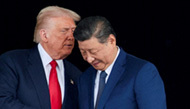


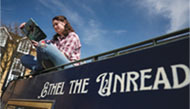


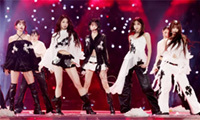
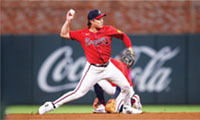















.png)


댓글 안에 당신의 성숙함도 담아 주세요.
'오늘의 한마디'는 기사에 대하여 자신의 생각을 말하고 남의 생각을 들으며 서로 다양한 의견을 나누는 공간입니다. 그러나 간혹 불건전한 내용을 올리시는 분들이 계셔서 건전한 인터넷문화 정착을 위해 아래와 같은 운영원칙을 적용합니다.
자체 모니터링을 통해 아래에 해당하는 내용이 포함된 댓글이 발견되면 예고없이 삭제 조치를 하겠습니다.
불건전한 댓글을 올리거나, 이름에 비속어 및 상대방의 불쾌감을 주는 단어를 사용, 유명인 또는 특정 일반인을 사칭하는 경우 이용에 대한 차단 제재를 받을 수 있습니다. 차단될 경우, 일주일간 댓글을 달수 없게 됩니다.
명예훼손, 개인정보 유출, 욕설 등 법률에 위반되는 댓글은 관계 법령에 의거 민형사상 처벌을 받을 수 있으니 이용에 주의를 부탁드립니다.
Close
x